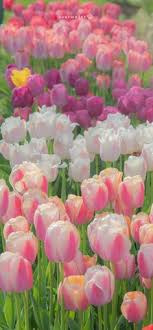
The Imperial Palace of China was not only a residence for the emperor and his court, but it also served as a cultural epicenter where art, literature, music, and poetry flourished. Among the various forms of artistic expression practiced in the palace, music and poetry held particularly prominent roles, often intertwining in elaborate competitions that not only showcased the intellectual and artistic prowess of the court members but also had profound cultural and political significance. These music and poetry competitions were central to the intellectual life of the empire, highlighting the importance of aesthetics, creativity, and cultural refinement in governance and daily life.
Throughout Chinese history, music and poetry were seen as essential elements of the civilizing process and as important tools for both entertainment and intellectual development. The competitions held within the imperial palace were not mere recreational events; they were an extension of the broader imperial philosophy that emphasized education, moral cultivation, and the harmonious balance of life. This article delves into the role and significance of music and poetry competitions in the Chinese imperial palace, exploring their cultural, political, and social implications and their lasting legacy in Chinese history.
1. The Cultural Importance of Music and Poetry
In traditional Chinese culture, music and poetry were deeply interlinked and highly revered as sophisticated forms of expression. Both were seen as the highest expressions of Chinese culture, representing harmony, beauty, and refinement. The cultivation of artistic skills, including music and poetry, was considered an essential aspect of moral education. In the court, the emperor’s patronage of these arts symbolized his wisdom and benevolence, reinforcing the ideal of the “sage ruler” who balanced power with culture and intellectual achievement.
Music: The Harmony of Heaven, Earth, and Man
Music in imperial China was regarded not only as an art form but also as a reflection of the cosmic order. Confucian teachings emphasized that music was a way to maintain harmony within society and align humans with the natural world and the universe. The emperor, as the ruler of the empire, was considered to be in charge of maintaining this cosmic harmony, and thus, the performance of music was deeply entwined with the emperor’s governance.
In the court, musical performances were not just for entertainment but were seen as a means to uphold Confucian values. Music competitions often involved court musicians playing traditional Chinese instruments such as the guqin (a seven-stringed zither), the pipa (a pear-shaped lute), and the erhu (a two-stringed bowed instrument), with compositions designed to evoke emotions of serenity, respect, and reverence.
Poetry: A Reflection of Wisdom and Virtue
Poetry, like music, was highly esteemed in the imperial court. It was seen as a reflection of one’s moral character, intellectual depth, and personal refinement. For scholars and court officials, composing poetry was not only a form of artistic expression but also a way to demonstrate their learning and mastery of Confucian classics, history, and literature.
The ability to write poetry was considered one of the most important skills for a court official, and poetry competitions were a regular occurrence in the imperial palace. These competitions were often organized during festivals, religious observances, and state occasions, providing an opportunity for intellectuals, scholars, and poets to showcase their abilities and compete for recognition and patronage.
2. Music Competitions in the Imperial Palace
Music competitions in the imperial palace were an important part of the court’s cultural life, serving both as a form of entertainment and as a means of promoting Confucian values. The emperor, often an accomplished musician himself, would attend these events and judge the performances. Music competitions were held on various occasions, including official state ceremonies, religious rituals, and even private gatherings of the imperial family.
The Role of Court Musicians
At the heart of the music competitions were the court musicians. These highly skilled individuals were often chosen through rigorous selection processes, and many were trained in the imperial academies. The musicians played an essential role in the competitions, performing traditional Chinese pieces that adhered to the strict rules of Confucian music theory.
In these competitions, musicians would perform compositions that were designed to convey specific emotions or moral lessons, in keeping with the Confucian belief that music had the power to cultivate virtue and harmony. The emperor would often offer guidance on how to improve the performance, reflecting his role as the ultimate cultural authority in the empire.
Symbolism and Rituals
Music competitions were often part of larger ceremonial events, such as the emperor’s birthday or the celebration of a successful military campaign. These events had great symbolic significance, as music was believed to bring prosperity and good fortune. The music played at these competitions was thought to align the natural and human realms, ensuring the prosperity and stability of the empire.
The li (rituals) were also an essential part of these musical competitions. The performances followed a strict ritualistic format, with specific movements, postures, and instruments used to create a sense of reverence and respect. These rituals were designed to reflect the harmony between the emperor, the court, and the natural world, creating a unified and balanced atmosphere.
3. Poetry Competitions in the Imperial Palace
Poetry competitions held in the imperial palace were another vital aspect of the cultural life of the court. These competitions were seen as a way to display intellectual prowess, creativity, and cultural refinement. Poets would often be invited to the palace to participate in these events, which were organized by the emperor or his officials.
The Structure of Poetry Competitions
The structure of poetry competitions varied, but typically, they involved the creation of poems based on specific themes or events. The emperor or a high-ranking official would announce a theme or a set of guidelines for the competition. Poets were then given a short time to compose their poems, which would be evaluated based on their literary merit, adherence to traditional poetic forms, and the expression of Confucian values.
The themes of the poems often revolved around moral and philosophical ideas, such as the concept of virtue, the nature of rulership, or the relationship between man and nature. Poets were expected to demonstrate their knowledge of the Confucian classics, history, and literature, and their poems often conveyed deep philosophical insights or moral teachings.
The Influence of the Imperial Examination System
The poetry competitions in the imperial palace were closely tied to the Imperial Examination System, which was the primary means of selecting officials in the imperial bureaucracy. The examination system placed a heavy emphasis on literary talent, and successful candidates often participated in poetry competitions to further display their intellectual abilities.
Poetry competitions were not only a way to celebrate artistic achievements but also a means for the emperor and his officials to identify talented individuals who could serve in the government. Many poets who excelled in these competitions were eventually appointed to prestigious positions within the imperial bureaucracy.
4. The Social and Political Significance of Music and Poetry Competitions
The music and poetry competitions held in the imperial palace were not just artistic events; they had significant social and political implications. These competitions helped to reinforce the emperor’s authority by promoting the ideal of the wise and cultured ruler, capable of understanding and appreciating the finer arts.
Reinforcing Social Hierarchy
The competitions also played a role in reinforcing the social hierarchy within the imperial court. The ability to compose poetry or perform music was seen as a mark of status and refinement. Poets and musicians who excelled in these competitions could gain favor with the emperor and be rewarded with important positions, wealth, and patronage.
Conversely, those who performed poorly or failed to impress in these competitions risked losing favor and influence within the court. As a result, the music and poetry competitions were an opportunity for scholars, officials, and artists to gain prestige and political power.
Cultural Diplomacy and Imperial Prestige
The competitions also served as a means of cultural diplomacy. The emperor would often invite scholars and poets from other regions and countries to participate in these events, showcasing the empire’s cultural sophistication to foreign dignitaries and visitors. The success of these events reflected the emperor’s ability to attract intellectuals and artists to the court, bolstering his image as a cultured and enlightened ruler.
5. Legacy of Music and Poetry Competitions
The tradition of music and poetry competitions in the imperial palace has had a lasting impact on Chinese culture. These competitions not only provided a platform for artistic expression but also reinforced the importance of education, cultural refinement, and moral cultivation.
The legacy of these competitions can be seen in the enduring value placed on music and poetry in Chinese society, with both remaining important elements of Chinese culture to this day. Modern-day Chinese poetry and music continue to draw inspiration from the rich tradition of imperial competitions, ensuring that this cultural legacy lives on.
6. Conclusion
The music and poetry competitions held in the imperial palace of China were not only a celebration of artistic talent but also a reflection of the deeper cultural and political values of the time. Through these competitions, the emperor reinforced his role as a cultured and enlightened ruler, and scholars and artists were given the opportunity to display their intellectual and creative abilities. These events played a significant role in shaping the cultural landscape of China and left a lasting legacy that continues to influence Chinese arts and culture today.
